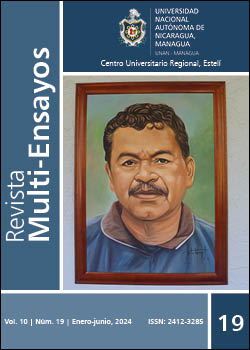The impact of Washback in the evaluation of english language skills in higher education in Nicaragua
DOI:
https://doi.org/10.5377/multiensayos.v10i19.17565Keywords:
Evaluation, higher education, English language, WashbackAbstract
English language assessment is of great importance in measuring students’ skills and knowledge in the English language. The objective of this research is to analyze and explain how, in higher education in Nicaragua, the Washback effect impacts the teaching and learning of the English language, especially in the context of higher education. A literature review was carried out, which allowed us to establish the theoretical bases of our work. Specifically, we wanted to explore how the Washback effect can negatively or positively affect student learning. In this work, some studies carried out in relation to our research problem were taken into account, which practically deals with the impact of Washback on the teaching-learning of the English language in higher education. The research, with a qualitative approach, was carried out through a semi-structured interview with two male professors of the English major, as well as a focus group with fifth-year students of the same major. Some results showed that the impact of Washback is very broad and it is reflected positively and negatively in the effect of the evaluation itself, the student’s attitude and the impact of feedback, as well as in the structuring and design of the tests.
Downloads
327
HTML (Español (España)) 221
Published
How to Cite
Issue
Section
License
Copyright (c) 2024 Revista Multi-Ensayos

This work is licensed under a Creative Commons Attribution-NonCommercial-ShareAlike 4.0 International License.

